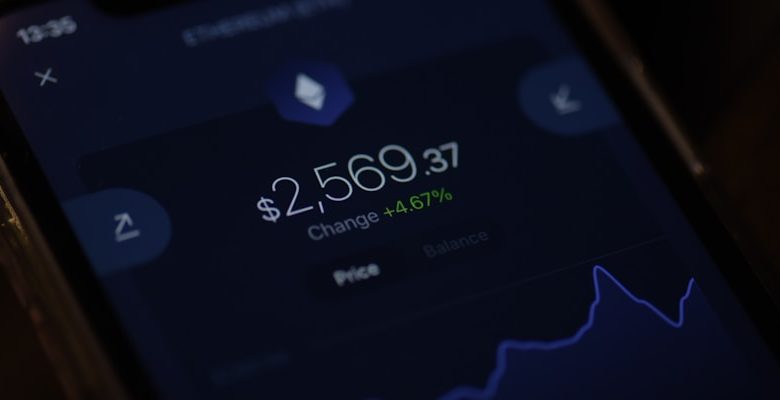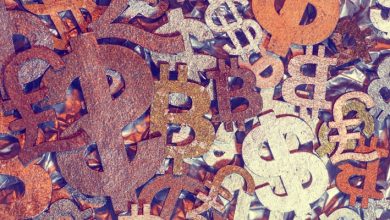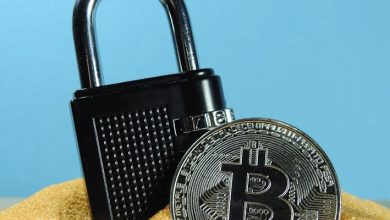How to Protect Your Crypto Assets from Hacks and Scams

- Understanding the risks of hacking and scams in the world of cryptocurrency
- Best practices for securing your crypto assets from potential threats
- Identifying common tactics used by hackers and scammers in the crypto space
- Steps to take to prevent falling victim to crypto hacks and scams
- The importance of using secure wallets and exchanges to safeguard your digital assets
- How to stay informed about the latest security threats and protect your investments
Understanding the risks of hacking and scams in the world of cryptocurrency
When it comes to the world of cryptocurrency, it is important to understand the risks associated with hacking and scams. Cryptocurrencies are a popular target for hackers due to their decentralized nature and the anonymity they provide. Hacks and scams in the crypto space can result in significant financial losses for investors.
One common type of scam in the cryptocurrency world is phishing. Phishing scams involve tricking individuals into providing their sensitive information, such as private keys or login credentials, by posing as a legitimate entity. It is essential to be cautious of unsolicited emails or messages that ask for personal information.
Another risk to be aware of is the presence of fake cryptocurrency exchanges. These exchanges may appear legitimate but are actually set up to steal users’ funds. It is crucial to do thorough research before using any exchange and to only use reputable platforms.
Hacking is also a prevalent threat in the world of cryptocurrency. Hackers may use various techniques to gain access to users’ wallets and steal their funds. It is crucial to use secure wallets and to enable two-factor authentication to add an extra layer of security to your accounts.
Best practices for securing your crypto assets from potential threats
When it comes to securing your crypto assets, there are several best practices you can follow to protect them from potential threats. By taking proactive measures, you can reduce the risk of hacks and scams that could result in the loss of your valuable digital currency.
One of the most important steps you can take is to use a secure wallet to store your crypto assets. Look for wallets that offer two-factor authentication, encryption, and other security features to keep your funds safe. Avoid using online wallets or exchanges for long-term storage, as they are more vulnerable to attacks.
Another key practice is to keep your private keys secure. Your private keys are what give you access to your crypto assets, so it’s crucial to keep them safe from prying eyes. Consider storing them offline in a secure location, such as a hardware wallet or a safe deposit box.
It’s also essential to stay vigilant and be cautious of phishing scams and other fraudulent schemes. Be wary of unsolicited emails or messages asking for your personal information or login credentials. Always double-check the authenticity of any website or service before providing any sensitive data.
Regularly update your software and use strong, unique passwords for all your accounts to prevent unauthorized access. Consider using a password manager to generate and store complex passwords securely. By following these best practices, you can help safeguard your crypto assets and minimize the risk of falling victim to hacks and scams.
Identifying common tactics used by hackers and scammers in the crypto space
When it comes to protecting your crypto assets from hacks and scams, it is crucial to be aware of the common tactics used by hackers and scammers in the crypto space. By understanding these tactics, you can better safeguard your investments and reduce the risk of falling victim to fraudulent activities.
- Phishing: One common tactic used by hackers is phishing, where they attempt to deceive individuals into providing sensitive information such as login credentials or private keys. These phishing attempts often come in the form of emails or messages that appear to be from legitimate sources, such as exchanges or wallet providers.
- Malware: Hackers may also use malware to gain access to your crypto assets. Malware can take many forms, including viruses, worms, and trojans, and can infect your devices when you click on malicious links or download compromised files.
- Social Engineering: Scammers may use social engineering tactics to manipulate individuals into revealing confidential information or transferring funds. This can involve creating fake personas or impersonating trusted individuals to gain the victim’s trust.
- Ponzi Schemes: Another common scam in the crypto space is Ponzi schemes, where individuals are promised high returns on their investments but are actually paid with the money from new investors. These schemes eventually collapse, leaving investors with significant losses.
By being aware of these common tactics used by hackers and scammers, you can take proactive steps to protect your crypto assets. This includes using secure passwords, enabling two-factor authentication, keeping your software up to date, and verifying the legitimacy of any requests for information or funds. Remember, the best defense against hacks and scams is vigilance and awareness.
Steps to take to prevent falling victim to crypto hacks and scams
To prevent falling victim to crypto hacks and scams, there are several steps you can take to protect your assets. One of the most important things you can do is to research and choose a reputable cryptocurrency exchange to trade on. Make sure to enable two-factor authentication and use a secure password to add an extra layer of security to your account.
Another important step is to avoid clicking on suspicious links or downloading attachments from unknown sources. Phishing scams are common in the crypto world, so always double-check the URLs of websites and emails before entering any personal information.
It’s also crucial to keep your private keys offline in a secure location, such as a hardware wallet. Avoid storing large amounts of cryptocurrency on exchanges, as they are more vulnerable to hacks. Regularly monitor your accounts for any unusual activity and report any suspicious behavior to the platform immediately.
The importance of using secure wallets and exchanges to safeguard your digital assets
It is crucial to prioritize the security of your digital assets by using secure wallets and exchanges. By employing these protective measures, you can safeguard your cryptocurrency holdings from potential hacks and scams.
Secure wallets, such as hardware wallets or cold storage solutions, offer an extra layer of protection by keeping your private keys offline and out of reach from cyber threats. These wallets are less susceptible to hacking attempts compared to hot wallets, which are connected to the internet.
When choosing a cryptocurrency exchange, opt for platforms that prioritize security features such as two-factor authentication, encryption, and regular security audits. Research the reputation and track record of the exchange to ensure that your assets are in safe hands.
By utilizing secure wallets and exchanges, you can minimize the risk of losing your digital assets to malicious actors. Stay vigilant and proactive in safeguarding your investments to enjoy peace of mind in the volatile world of cryptocurrency.
How to stay informed about the latest security threats and protect your investments
Staying informed about the latest security threats is crucial to protect your investments in the world of cryptocurrency. One way to do this is by following reputable cybersecurity websites and subscribing to their newsletters. These sources often provide timely updates on emerging threats and offer valuable insights on how to safeguard your crypto assets.
Additionally, joining online forums and communities dedicated to cybersecurity can help you stay up to date on the latest trends in hacking and scams. Engaging with other members of these communities can provide you with valuable information and tips on how to enhance the security of your investments.
Another important step is to regularly review the security measures of the platforms and wallets where you store your crypto assets. Make sure to enable two-factor authentication, use strong and unique passwords, and keep your software up to date to minimize the risk of being hacked.
Lastly, consider seeking guidance from cybersecurity experts or financial advisors who specialize in cryptocurrencies. These professionals can offer personalized recommendations on how to protect your investments based on your specific situation and risk tolerance.



